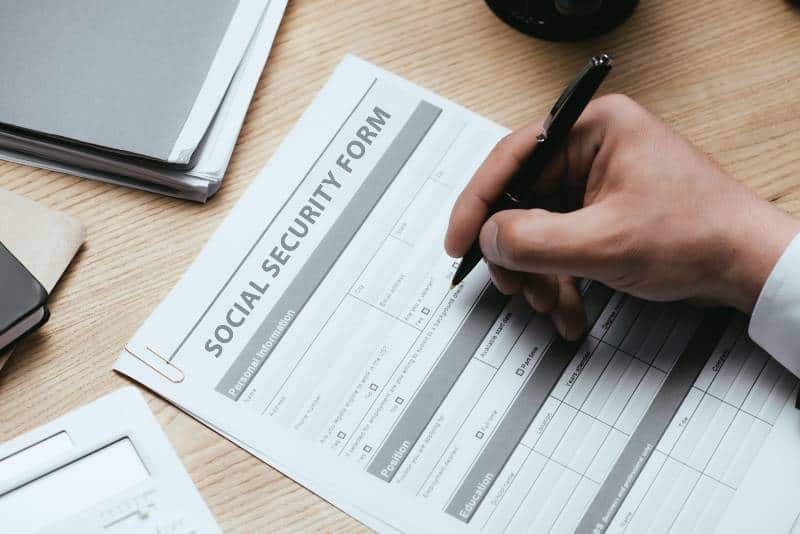Living Abroad? Know Your Social Security Benefits
U.S. citizens, you can receive social security retirement, family survivor, or disability benefits even if your feet have taken you overseas! As long as the requirements are met and the foreign country is approved for payments abroad, retirees don’t need to worry about when they’ll get their money from home – simply enjoy life wherever in the world it takes them.
U.S. citizens living in Cuba and North Korea are unable to receive Social Security payments, but those relocating out of these countries have the chance to claim them again. Additionally, for Americans currently residing in eight other nations—Azerbaijan, Belarus, Kazakhstan, Kyrgyzstan, Moldova, Tajikistan, Turkmenistan, or Uzbekistan —there is an opportunity to collect Social Security funds; however, this comes with some additional requirements such as verifying their residency through a U.S embassy or consulate every six months.
Non-U.S. citizens with a work history may be eligible to receive benefits from abroad, depending on the country of their citizenship and residency (taking into consideration applicable payment restrictions). Additional conditions may apply to those looking for family or survivor benefits.
Are you looking to see if you are qualified for foreign benefits? Reach out to Social Security’s Office of Earnings & International Operations at www.ssa.gov/foreign or 410-965-0160 and find out in no time.
All payments are calculated in U.S. dollars, regardless of your geographical location.
Should you leave the United States, we will suspend your benefits following the sixth sequent month abroad. But if it’s only a temporary stay, then you may return to America to continue receiving entitlements – all depending on how long you have been away from home.
Key Takeaways
- Living abroad is defined by Social Security as residing outside of any of the 50 states, District of Columbia, Puerto Rico, U.S. Virgin Islands, Guam, Northern Mariana Islands, or American Samoa for at least thirty days in a row without interruption. If you come back to America and stay longer than 30 consecutive days then your status will revert to living domestically instead of overseas.
- Social Security sends an inquiry to recipients residing overseas at least once every two years (based on their age, country of residence, and other criteria), which is necessary for them to retain their eligibility for benefits.
- If the questionnaire isn’t returned in a timely manner, your payments will be suspended indefinitely.
Eligibility for Social Security benefits while living abroad
If you’re a U.S. citizen
Did you know that if you’re a U.S. citizen living abroad, you may still be eligible for Social Security benefits? The Social Security Administration classifies you as “outside the United States” if you leave the country for at least 30 consecutive days.
As long as you meet the usual criteria for eligibility, you can collect retirement, disability, or survivor benefits wherever you are in the world.
However, there are some countries where Social Security won’t make benefit payments, like Cuba, North Korea, and certain former Soviet republics. But don’t worry, if you happen to be living in one of those countries, you’ll still get all your unpaid benefits once you’re back in the United States.
If you are an American living in a foreign country, the Social Security Administration’s Payments Abroad Screening Tool can provide clarity on whether or not you qualify to receive benefits while overseas. Utilize this helpful screening tool to find out if your eligibility status has changed!
If you’re not a U.S. citizen
If you’re a non-U.S. citizen and wondering if you’re eligible for Social Security benefits while living abroad, the rules can be a bit complicated. Depending on your country of citizenship, where you’re currently residing, and the type of benefits you’re claiming, you may or may not be eligible. However, there’s good news!
The U.S. has signed “totalization agreements” with over 25 other countries to help simplify the process. So, if you want to know how these agreements affect you, head over to the Social Security Administration website to get started. It’s always best to have all the information you need to make informed decisions, especially when it comes to something as important as Social Security benefits.
Receiving Social Security benefits while living abroad
Typically, after six months abroad, SSDI Benefits cannot be paid to non-citizens. Fortunately, though, you might qualify for an exception that allows these benefits even if you do not return to America.
Unless an exception is applicable, you must formally and lawfully inhabit the United States for a continuous calendar month to receive benefits. If you decide to leave the country, your allotted benefits will cease at the end of the sixth consecutive calendar month spent outside of America’s borders.
You can make visits to the United States for specific periods of time, depending on how long you’ve been outside, to continue receiving your benefits.
For more information about receiving Social Security benefits outside the United States, see the ‘Your Payments While You Are Outside the United States
Taxes on Social Security benefits while living abroad
U.S. tax obligations for individuals living abroad
The answer to this depends on the details of your employment.
- Regardless of your home country and the location in which you work, if an American employer hires you, they will likely demand that payments be made to US Social Security.
- Generally, you won’t be required to pay into US Social Security if you are employed by a foreign employer.
- As a self-employed individual, you are responsible for paying your own Social Security and Medicare taxes which is known as the “self-employment tax” instead of splitting them with the US employer.
- If you are a US employee or self-employed, double taxation may be imposed on your income due to the various rules. This is because when you receive payment for this income, both governments—your home country and the US—will likely tax these earnings with social security taxes. Therefore, essentially paying twice in social security fees.
Tax treaties with other countries and their impact on Social Security benefits
If your home country has a Totalization Agreement with the United States, it could be tremendously influential in deciding how much you owe for taxes.
Totalization agreements are a boon to both US citizens and their employers who live abroad. For the former, it can completely remove, or at least reduce social security taxes – for the latter, it eliminates the need for withholding and reporting social security contributions from employees.
International ex-pats, rejoice! Totalization agreements are a blessing to us all: they allow for the coordination of social security taxes across countries. If you live in a nation with such an agreement, your contributions made to the US Social Security system will be credited and rewarded.
If you earned income from two countries and paid taxes to both, only one country can tax the same source of earnings.
Special situations and considerations
Impact of dual citizenship on benefits
As an eligible US citizen, your Social Security benefits will be uninterrupted even if you hold dual citizenship. The only way to lose access to social security is by renouncing your American citizenship.
Thus, if you possess dual citizenship between South Africa and the US, your access to benefits will not be diminished. It’s critical to keep in mind that there are regulations while attempting to collect benefits overseas.
Medical care and insurance coverage while living abroad
If you have relocated abroad permanently, it is important to choose whether or not to maintain Medicare Parts A and B. You can continue having Medicare coverage abroad; however, bear in mind that medical care will usually not be covered by the program.
If you’re eligible for premium-free Part A coverage, consider yourself lucky; after all, you won’t need to pay anything for it! However, if a monthly payment is required in order to maintain Part A coverage, be aware that the cost may be high.
If you have registered for premium-free Part A, keep in mind that you are unable to cancel your membership without repaying all of the benefits and claims provided to you by the Social Security Administration (SSA), including any Social Security retirement or disability payments and Medicare charges.
As a U.S. citizen living abroad, you have the opportunity to receive Social Security retirement benefits.
In certain countries, if you or your spouse have held a job and paid Social Security taxes in the United States for at least ten years, then you may be eligible to receive retirement benefits through Social Security. If you started receiving these benefits prior to when they became Medicare-eligible, chances are that Part A coverage was automatically enrolled for them.
To learn more about your eligibility for Social Security benefits while residing overseas, reach out to the closest Social Security office, Consulate, or Embassy.
If you are living abroad permanently and don’t frequently travel to the United States, Part B might not be worth its cost. You must still pay monthly premiums on Part B even though your care will not be covered by Medicare – making it difficult to justify keeping enrolled in this program. Before relocating overseas, it is essential to research your healthcare coverage possibilities in the nation you plan on residing.
If you are a resident of certain nations, you may be eligible for national health insurance or can purchase private coverage. Make sure to research and get the necessary details about this protection so that it is both budget-friendly now and in the long term while also ensuring it will offer enough security.
Social Security Benefits While Living Abroad FAQs
What is the definition of living abroad according to Social Security?
What happens if I stay longer than 30 consecutive days in the U.S. while living abroad?
The SSI benefits of an individual will cease should they be outside the United States for more than thirty days. To reinstate such aid, it is necessary to stay in America for at least a month; nonetheless, exemptions are granted to dependent children of military personnel and students studying abroad.
How often does Social Security send inquiries to recipients living overseas?
Depending on an individual’s age, the country in which they reside, and other related factors, Social Security will routinely send a questionnaire to recipients living outside of America every one or two years.
What happens if I don’t return the Social Security inquiry in a timely manner?
Failing to reply to a Social Security inquiry in an expeditious manner may result in the withholding or denial of your benefits. To prevent any potential issues, it is essential that you answer all inquiries from the Social Security Administration as quickly and accurately as possible. However, if more time is needed to assemble the required information, don’t hesitate to reach out and ask for additional leeway with your local SSA office.
Are there any tax obligations for individuals living abroad who receive Social Security benefits?
If the IRS categorizes you as a nonresident alien for tax reasons, then SSA is obligated to apply a 30 percent flat income tax rate to 85 percent of your Social Security retirement, survivors’, or disability benefits. This translates into 25.5 percent being withheld from each monthly benefit payment.
Conclusion
It can be confusing to understand the regulations on Social Security benefits when living abroad. That’s why it’s essential for individuals in this type of situation to do as much research and keep up with the latest updates. Information is power, so be sure to educate yourself as much as possible before making any decisions.
Additionally, if you want extra support and guidance, there are many resources available throughout the world dedicated to helping individuals access social security benefits while living overseas.
If you live in Thailand, subscribing to our newsletter is an excellent step to staying informed on all things related to accessing social security benefits during such a unique lifestyle change!






